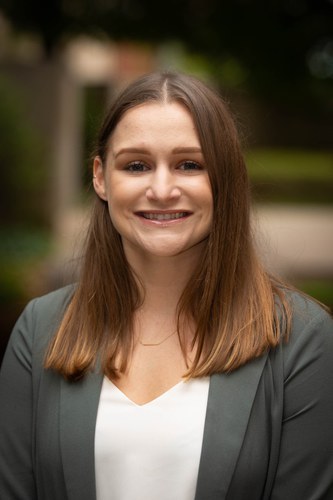Posted: January 14, 2021
Rachel Herschlag, a doctoral student in the Department of Plant Pathology and Environmental Microbiology in Penn State’s College of Agricultural Sciences, has been selected as one of the recipients of the 2020-21 Distinguished Graduate Fellowships.

Rachel Herschlag
UNIVERSITY PARK, Pa. – Rachel Herschlag, a doctoral student in the Department of Plant Pathology and Environmental Microbiology in Penn State's College of Agricultural Sciences, has been selected as one of the recipients of the 2020-21 Distinguished Graduate Fellowships.
Distinguished Graduate Fellowships are one of the most competitive graduate-level awards at the University. The fellowships are endowed through collaborative funding from donors, the Graduate School and academic colleges. A Distinguished Graduate Fellowship provides the student with a prestigious financial support package that includes a stipend, payment of tuition and a health insurance subsidy. Selection is determined within each college and with concurrence of the Dean of the Graduate School.
Herschlag is advised by Dr. Carolee Bull, professor and head of the Department of Plant Pathology and Environmental Microbiology at Penn State.
“Rachel has exceptional motivation for graduate research, stemming from previous experiences in academia and industry," said Bull. “Our department appreciates her passion for science education and extension, which have been exhibited through her work with Lincoln University - the nation's first degree-granting Historically Black College."
Herschlag's current research focuses on Pseudomonas syringae, a species complex of bacteria that includes the causal agents of bacterial leaf spot on cucurbits, beet and chard. P. syringae can be seedborne, allowing for its introduction into fields. To reduce the spread of seedborne P. syringae, her research aims to develop detection methods that not only confirm the presence of the pathogen but determine which strain(s) of P. syringae are present. Additionally, she is interested in finding ways to distinguish between live and dead P. syringae cells on seeds, so that only seeds with live P. syringae are discarded.

